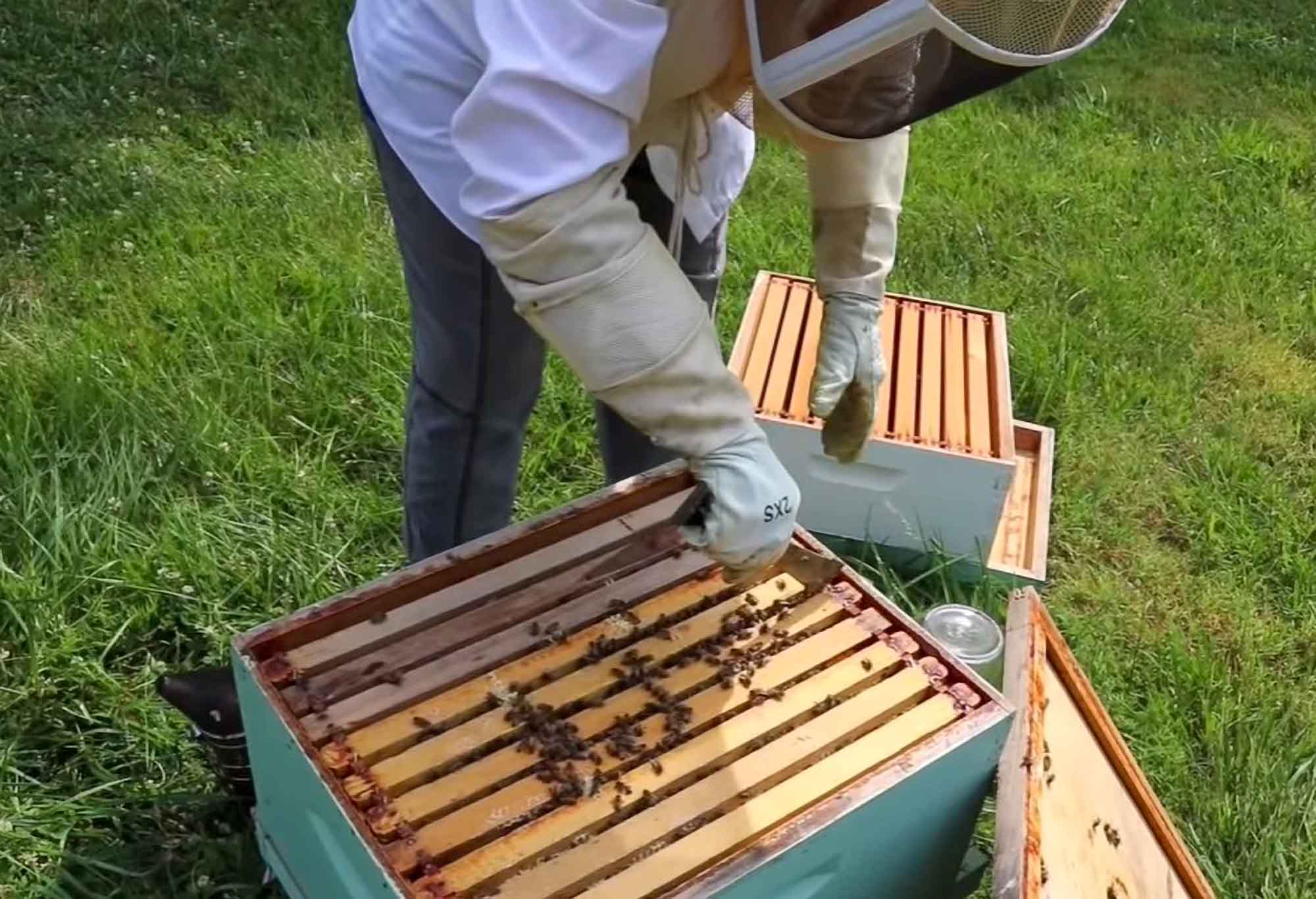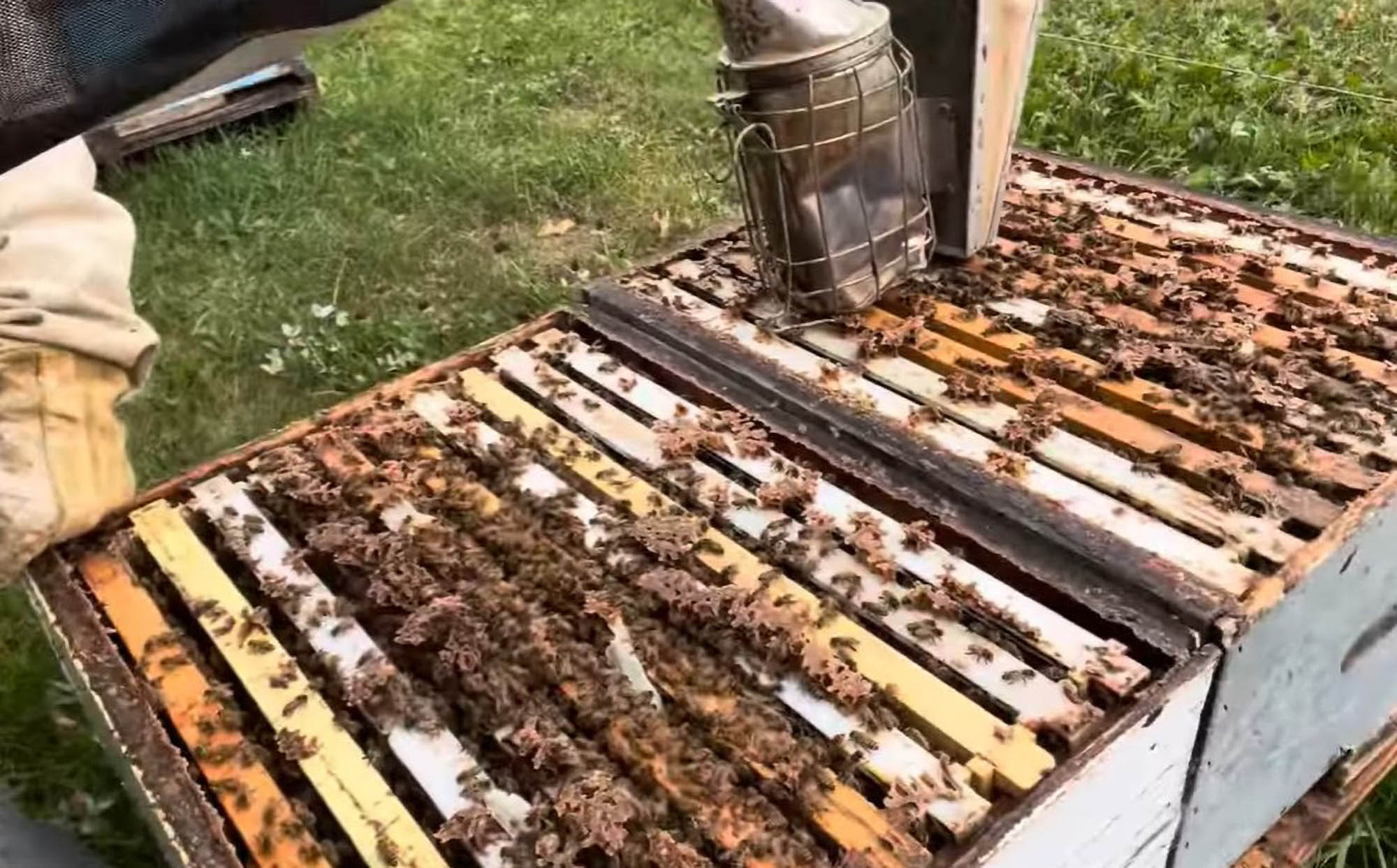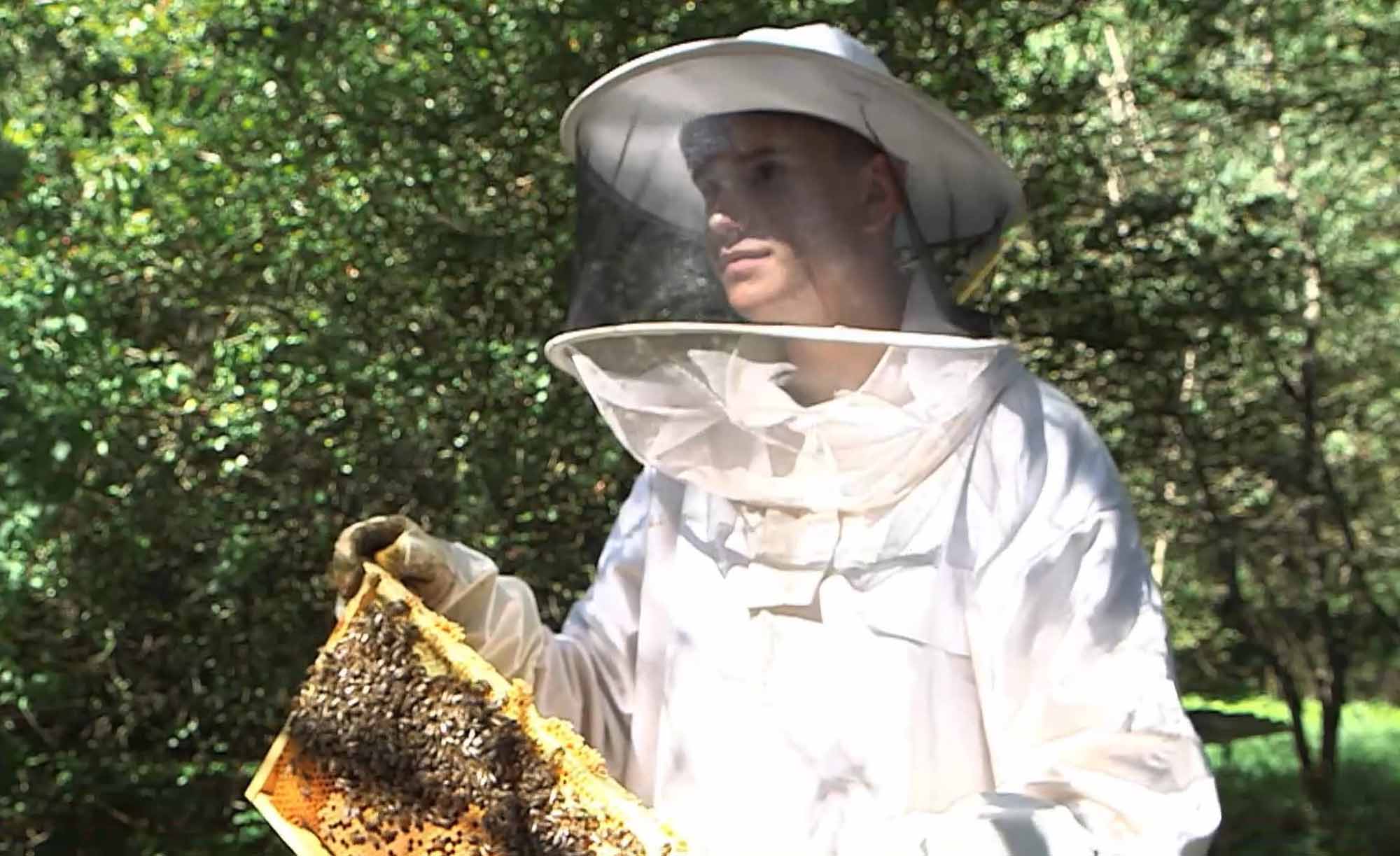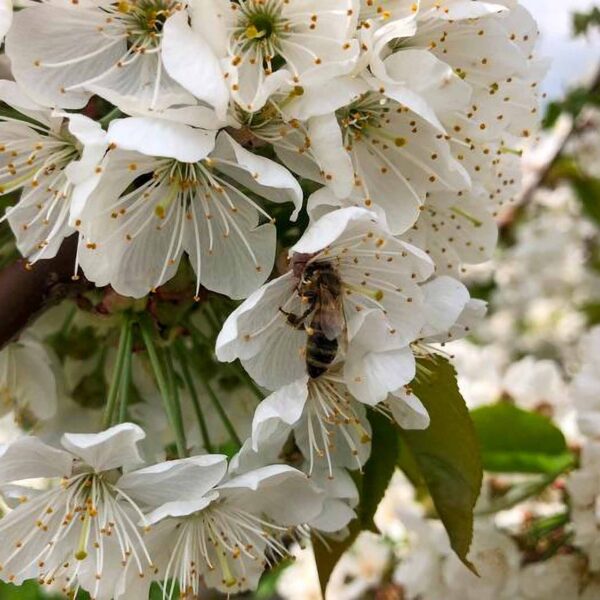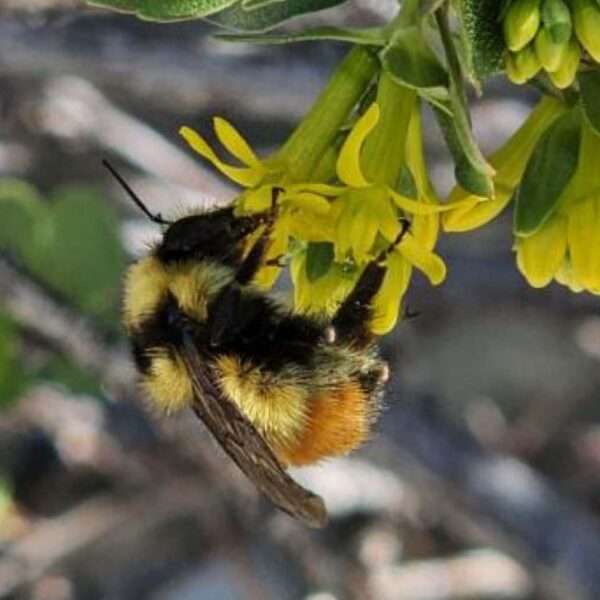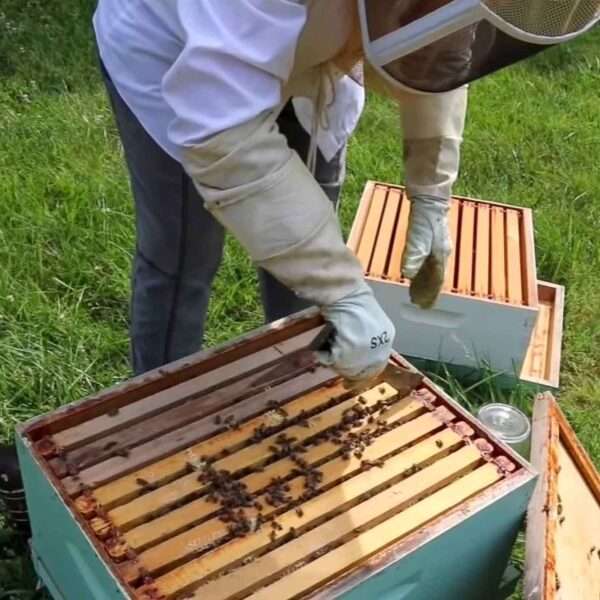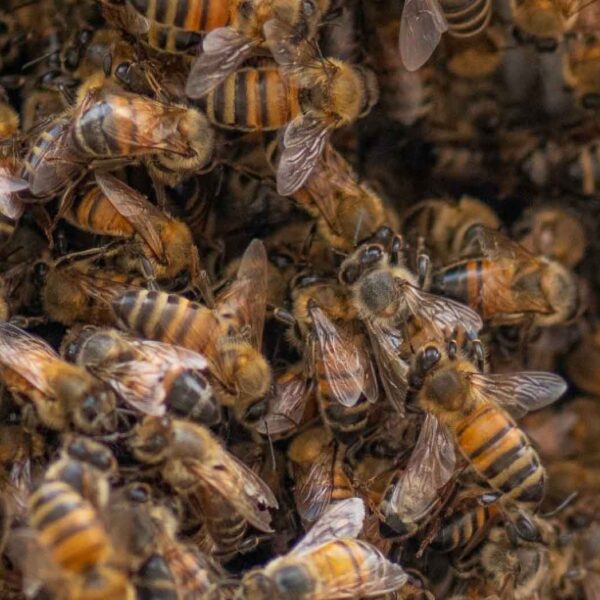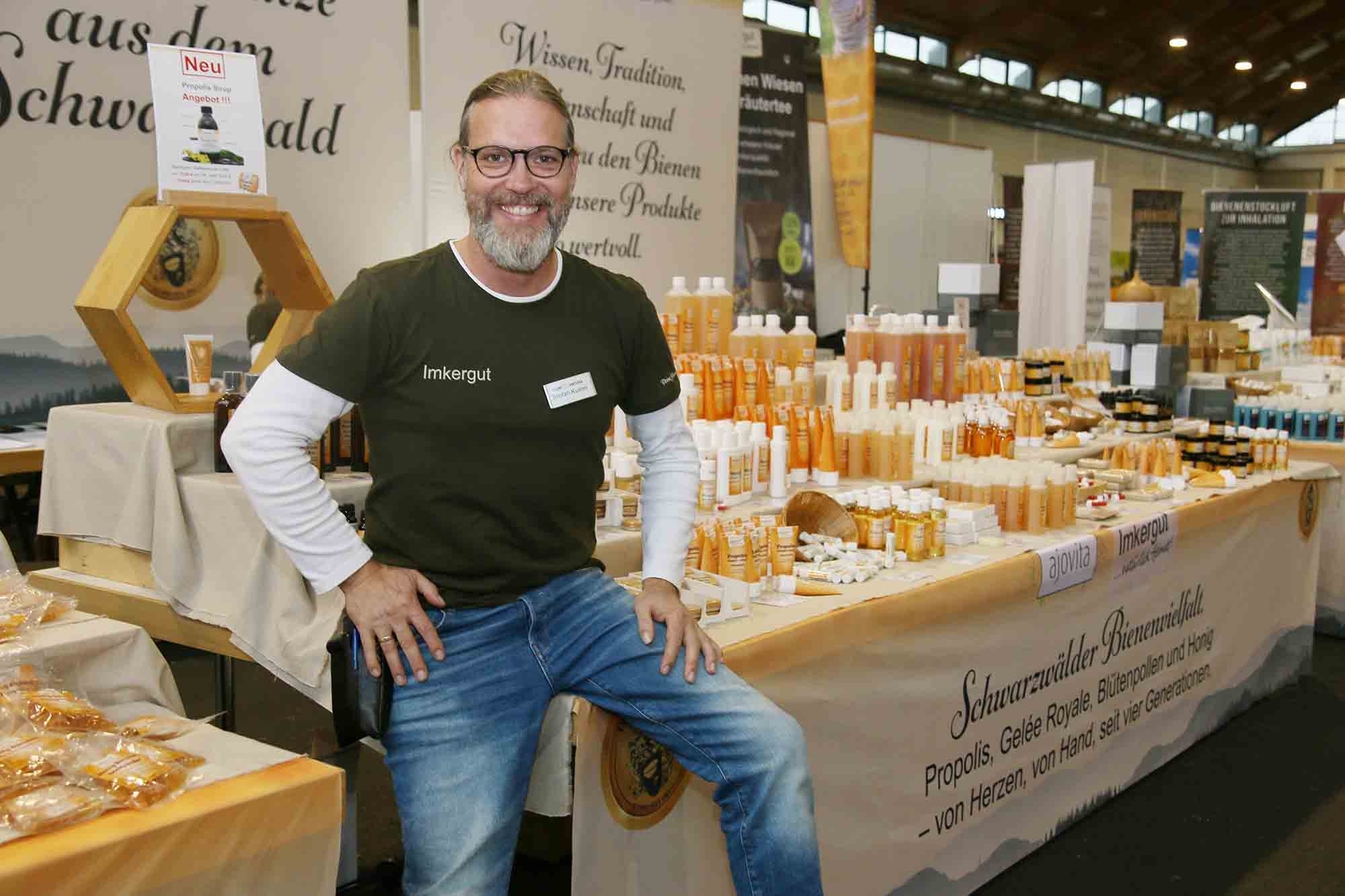Honeybees act in a thoroughly altruistic way in the hive, a study by scientists at a higher education institution in the United States has revealed.
Entomologists at Pennsylvania State University (Penn State) investigated the genetics behind the so-called retinue behaviour in worker bees. These members of a domesticated bee colony are always female.
The worker bees deactivate their ovaries after being exposed to the queen bee’s pheromone. By doing so, they help to spread the substance to their peers before looking after the queen of the colony and its eggs.
Penn State science writer Katie Bohn explained: “This behaviour is considered altruistic because it ultimately benefits the ability of the queen to produce offspring, while the worker bee remains sterile.”
A honeybee colony queen is normally the mother of all other members of the hive. Honeybee colonies consist of up to 60,000 animals.
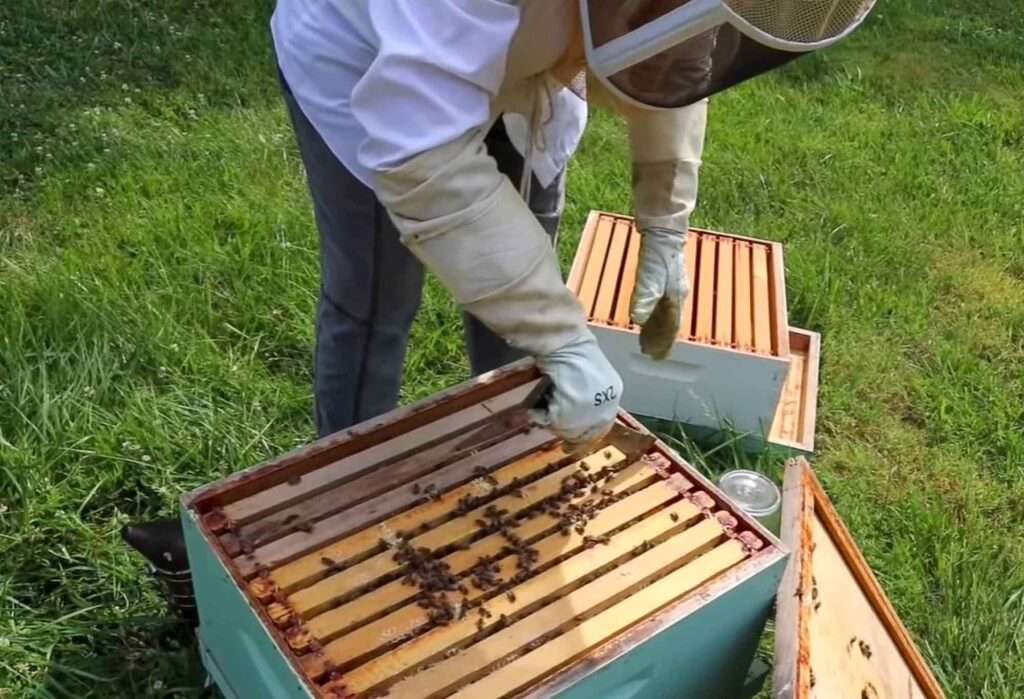
The Penn State experts discovered that genes that make worker bees more receptive to this pheromone can be passed down from either the mother or father insect. However, the genes only ensured altruistic behaviour if they were passed down from the mother.
Worker bees gather nectar, guard the hive and produce honey. However, they are also in charge of caring for the larvae and the queen.
Researcher Sean Bresnahan said: “People often think about different phenotypes being the result of differences in gene sequences or the environment. But what this study shows is that it is not just differences in the gene itself. It is which parent the gene is inherited from.”
The examination backs the theory that the genes of the mother and the father animals are in conflict over what behaviours to support, according to Penn State’s Prof Christina Grozinger.
The entomologist underlined that the study, for which six different lineages of honeybees were crossbred, was the first to determine that genes from female bees can pass altruistic behaviour onto their offspring.
Prof Grozinger said: “Honeybees are one of the few animal species that display altruistic behaviour where some individuals give up their own reproduction to help others. This study reveals a very subtle and unexpected form of genetic control of those behaviours.”
She concluded: “Hopefully, our research will provide a framework and inspiration for other scientists to examine intragenomic conflict in their plant and animal species.”

